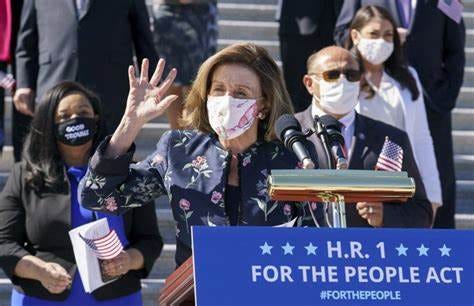It seems obvious to me that if a problem affects a majority of the people, you need to look for a fix that improves things for everyone. But when there are only a relatively small number of people affected, you should tailor the solution narrowly to address these issues. I first became aware of the attraction of creating big, complex solutions to problems while working at an IT company. Their travel expense process made a lot of sense. You got a per diem for hotels and food and the travel app helped you find good deals on flights. If you wanted an exception, you could explain why you needed this and often, it would be approved. Example: I had to go to Seoul during the World Cup to teach a class. The only seats available were in business class. I found the cheapest one I could and they approved the exception.
This makes sense. But after a while, a small number of people began to abuse the system, so they created a litany of rules that cost us a lot more time and often cost more money just to try to get after the few who pushed the envelope. Instead of being able to buy some cheese, wine, fruit and bread at Trader Joes that would cover several evening meals, I had to enter expenses for each meal with a separate receipt. So, I ate out, which cost more. We wouldn’t be compensated for a meal if we completed a trip in one day, even if that day started with a 3:30AM departure from home and ended with a late evening return. People began to stay the night. It would have made far more sense to go after the few miscreants instead of making everyone worse off.
The federal government is a master at exception management. Obamacare took an insurance system that even by their own analysts, worked for most people and transformed it into one that worked far less well for most. Sure, some people were able to obtain insurance for the first time, but not all of the “uninsured.” The Legislature never really asked the question. Why were some people under or uninsured? It turns out that there was a large class who chose not to be, whether because they didn’t believe they needed it, or preferred to self-insure. After Obamacare, small businesses suffered because the costs went thru the roof for them. They dropped plans that had worked for their employees rather than incur the extremely high costs. If you don’t believe me, I dropped the regular kind of insurance when my premiums for a Bronze plan (the cheapest) went up to $1200/month for one person with a deductible of $6800 (and no HSA).
We’re seeing this happen again with all kinds of voting reform nonsense, a lot of which is frankly racist. Blacks can’t figure out how to get some form of government ID? Don’t make me laugh; I’ve traveled on planes with people of all races and TSA makes you prove your ID before boarding. The government would rather sacrifice the integrity of the process, making it resemble Chicago-style politics (I grew up there), where dead people voted multiple times and ballots were dumped in Lake Michigan so the outcome could be guaranteed. If you truly want to “fix” the problem where some people struggle to vote, let’s start by figuring out why they can’t make it work. Create provisions to handle the case of someone who can’t get out to get an ID, and who has ceded their license due to age. Focus on the specific cases and let the election board deal with a problem rather than reinventing the process for everyone. A majority of people think there were serious problems with this last election; nothing proposed would improve the integrity of the process, nor would it really make it easier for those exceptions to cast a legal ballot.
When I started thinking of this problem, I looked at the work example and tried to correlate it to government. This didn’t give me the answer. The reason the company made more stringent rules was that it was much easier to put in these rules into our existing system than to employ personnel to go after the people who needed to be reined it. This doesn’t explain government exception rule-making. None of the solutions take fewer than three reams of paper to print out; it isn’t simplicity.
No. It’s simply about control. If one Inuit in Alaska had an issue that the government thought they could solve, they would impose the solution on everyone else because only in that way can they increase control. It’s another way that the incentives in government differ from those of successful organizations. As Rahm Immanuel famously said, “Never let a crisis go to waste.” What he should have added was that in the Democrats’ minds, evey problem, no matter how small, is a crisis.
Many people simply don’t vote. They choose not to, whether because they simply don’t care about the outcome, don’t feel their vote matters, have too much else to do, etc. This is everyone’s right, even as I personally feel a responsibility to vote. America is about choice. But leaving it up to individuals and carefully vetting ballots to ensure that each citizen only gets one vote is the only job governments have.
Big, hairy, audacious solutions sell papers and, in some cases, get votes. Small, well-targeted solutions do not, not at the government level. We need to push back at these proposals and challenge them to do the least possible, to make the fewest changes possible so we can retain our freedoms. These solutions are not “for the people,” unless the “people” involved just mean your Senators and Representatives. Make a pledge to stop voting for people whose grandiose solutions cause so much harm. It’s something we can all do.




